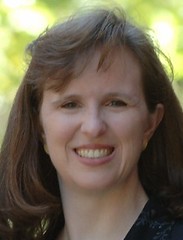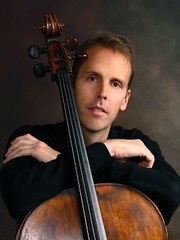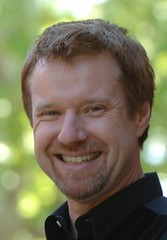CANCELED
Due to unannounced renovations to the Library's Hicks Auditorium this program has been canceled. Trio Solis hopes to reschedule.
Founded in 2008, Trio Solis combines three dynamic virtuosi:
Corinne Stillwell (violin),
Gregory Sauer (cello), and
Read Gainsford (piano)
Since their Music @ Main concert in January 2009, subsequent performances by the faculty artists from Florida State University's College of Music included an engagement at New York's Carnegie Hall in May 2009, where they played the Trio by Pulitzer Prize-winning composer Ellen Taaffe Zwilich with the composer in attendance.
Join us in welcoming these outstanding artists back to the Library's Hicks Auditorium for an evening of chamber music offerings from the 19th, 20th and 21st centuries!
PROGRAM SELECTIONS
BIOGRAPHY RESOURCE CENTER articles for...
Jean Françaix
Anton Arensky
Use your Jacksonville Public Library Card number to access the articles from our subscription databases.
Or Get a free eCard here!
The eCard allows anyone access to our online services!
Or Get a free eCard here!
The eCard allows anyone access to our online services!
Jean Françaix
Jean Françaix in the Library's Catalog
Edward Lein
Edward Lein in the Library's Catalog
Anton Arensky
Anton Arensky in the Library's Catalog
Corinne Stillwell (violin) earned her degrees from The Juilliard School, where she first enrolled at age ten. A versatile musician, she has appeared in recital at Carnegie's Weill Recital Hall, on the Dame Myra Hess series in Chicago, and as soloist with numerous orchestras across the United States and on tour in Eastern Europe. Her chamber music activities have included performances at Alice Tully Hall, the Chamber Music Society of Lincoln Center, the Kosciuszko Foundation, the Museum of Modern Art, and at the festivals of Aspen, Norfolk, Skaneateles, the Victoria Bach Festival, and the International Festival-Institute at Round Top in Texas. Frequently heard on WXXI-FM public radio, she has collaborated with David Shifrin, Robert Levin, Pepe Romero, members of the Pro Arte and Cavani quartets, and members of the faculty at the Eastman School of Music. She has served as Assistant Concertmaster of the Rochester Philharmonic and prior to that, was a member of the Harrington String Quartet in Amarillo, Texas. In 2007, Ms. Stillwell joined the faculty at Florida State's College of Music, where she is Assistant Professor of Violin.
Praised for his versatility, Gregory Sauer (cello) has appeared in numerous solo recitals, including performances at the Old First Concert Series in San Francisco, the Crocker Art Museum in Sacramento and the Brightmusic Concert Series in Oklahoma City, and numerous chamber music performances have included appearances at Tanglewood, Aspen Music Festival, Santa Fe Promusica, and the Boulder Modern Music Festival, among many others. Greg has performed concertos with the Houston Symphony, Hudson Valley Philharmonic, the Tallahassee Symphony Orchestra, the Quad City Symphony, and Oklahoma City Philharmonic, to name only a few. A Prizewinner in the Hudson Valley Philharmonic and Ima Hogg national competitions, he served nine seasons as principal cellist of the Oklahoma City Philharmonic Orchestra. Mr. Sauer is Assistant Principal Cello of the Colorado Music Festival Orchestra, and, prior to joining the Florida State University music faculty in 2006, he taught at the University of Oklahoma for 11 years, where he was named Presidential Professor in 2005.
Read Gainsford (piano) has performed widely in the USA, Europe, Australia, South Africa, and his native New Zealand as solo recitalist, concerto soloist and chamber musician. He has made successful solo debuts at the Wigmore Hall and Carnegie Hall's Weill Recital Hall, and has performed in many other prestigious venues, including the Kennedy Center, Queen Elizabeth Hall, Barbican Centre, Fairfield Halls, Birmingham Town Hall and St.-Martin-in-the-Fields. Dr. Gainsford has recorded for the Amoris label, BBC Radio Three, Radio New Zealand's Concert Programme, and has broadcast on national television in New Zealand, the UK, and Yugoslavia. Since moving to the United States in 1992, Read has been a guest artist for the American Music Teachers Association, has appeared at the Gilmore Keyboard Festival and the Music Festival of the Hamptons, and has spent several summers at the Heifetz International Music Institute. He is a member of the contemporary music group Ensemble X, and also the Garth Newel Chamber Players. Formerly on the faculty of Ithaca College where he received the college-wide Excellence in Teaching Award in 2004, Dr. Gainsford became Associate Professor of Piano at FSU in 2005.
Program Notes by Ed Lein, Music Librarian
Jean Françaix (1912-1997)
Trio for Violin, Cello and Piano (1986)
I. [No designation] -- II. Scherzando -- III. Andante -- IV. Allegrissimo
 Although the parents of French composer, orchestrator and concert pianist Jean Françaix were professional musicians -- his father directed the Le Mans music conservatory and his mother was a singer and vocal coach -- the musical talents of such a precocious youngster likely would have been obvious to just about anyone. Young Jean began composing at age six, and by 10 he had become a published composer. At this point his exceptional talent was brought to the attention of Nadia Boulanger, the extraordinarily gifted teacher who mentored some of the greatest musical talents of the 20th Century, ranging from Aaron Copland, Elliott Carter and Ástor Piazzolla to Burt Bacharach and Quicy Jones, and even among such luminaries Boulanger considered Françaix to be one of the most naturally gifted composers she had worked with. Françaix, who remained an unapologetic neoclassicist throughout his long career, never ceased adding to his catalog of over 200 compositions in virtually all forms (including operas and film scores), finishing his last completed work less than four months before his death.
Although the parents of French composer, orchestrator and concert pianist Jean Françaix were professional musicians -- his father directed the Le Mans music conservatory and his mother was a singer and vocal coach -- the musical talents of such a precocious youngster likely would have been obvious to just about anyone. Young Jean began composing at age six, and by 10 he had become a published composer. At this point his exceptional talent was brought to the attention of Nadia Boulanger, the extraordinarily gifted teacher who mentored some of the greatest musical talents of the 20th Century, ranging from Aaron Copland, Elliott Carter and Ástor Piazzolla to Burt Bacharach and Quicy Jones, and even among such luminaries Boulanger considered Françaix to be one of the most naturally gifted composers she had worked with. Françaix, who remained an unapologetic neoclassicist throughout his long career, never ceased adding to his catalog of over 200 compositions in virtually all forms (including operas and film scores), finishing his last completed work less than four months before his death. Written when Françaix was in his 70s, his sparkling Piano Trio received its first performance at the 1987 Cheltenham Festival in England, and (as best we can tell) this (its latest performance!) is the Jacksonville premiere. At times reminiscent of Poulenc and Shostakovich, the Trio demonstrates the composer's witty, eclectic style, and shows that he never lost his youthful energy and playfulness.
Edward Lein (b. 1955)
Rumor: Rumba for Violin and Cello
 Edward Lein, a native of Fort Pierce, Florida, is the Music Librarian for Jacksonville Public Library, holding Master's degrees in both Music and Library Science from Florida State University, and as a tenor soloist (now retired) he appeared in recitals, oratorios and dramatic works throughout his home state. Drawing on his performance experience the majority of his earliest compositions were vocal works, including Missa pro defunctis (Mass for the Deceased, 1991), first performed by Riverside Presbyterian Chancel Choir with members of the Jacksonville Symphony Orchestra. Following premieres by the Jacksonville Symphony of his Meditation, for Cello, Oboe and Orchestra (2006) and In the Bleak Midwinter (2007), his instrumental catalog has grown, largely due to requests from Symphony players for new pieces. He endeavors to imbue his instrumental works with a singing lyricism similar to that of his vocal works.
Edward Lein, a native of Fort Pierce, Florida, is the Music Librarian for Jacksonville Public Library, holding Master's degrees in both Music and Library Science from Florida State University, and as a tenor soloist (now retired) he appeared in recitals, oratorios and dramatic works throughout his home state. Drawing on his performance experience the majority of his earliest compositions were vocal works, including Missa pro defunctis (Mass for the Deceased, 1991), first performed by Riverside Presbyterian Chancel Choir with members of the Jacksonville Symphony Orchestra. Following premieres by the Jacksonville Symphony of his Meditation, for Cello, Oboe and Orchestra (2006) and In the Bleak Midwinter (2007), his instrumental catalog has grown, largely due to requests from Symphony players for new pieces. He endeavors to imbue his instrumental works with a singing lyricism similar to that of his vocal works. Rumor is the last movement of a four-movement suite called Un Dulcito ("A Little Sweet"), mimicking the Latin American ballroom dances that inspired them, and the composer is delighted to have such distinguished artists give the premiere performance of his little rumba (rumbita?). The entire suite grew from Tangle, a tango written in March 2009 at the request of Jacksonville Symphony players Piotr Szewczyk and Alexei Romanenko, and both Rumor and Hoodoo (the first movement samba) include variations of the tune from Tangle. Adapted for string orchestra, Un Dulcito is scheduled for its first complete performance this fall by the Vero Beach High School Symphony.
Anton Arensky (1861-1906)
Piano Trio No. 1 in D Minor, op. 32 (1894)
I. Allegro moderato -- II. Scherzo (Allegro molto) -- III. Elegia (Adagio) -- IV. Finale (Allegro non troppo)
 Russian composer, pianist, conductor and teacher Anton Arensky is of the generation between Rimsky-Korsakov (his teacher) and Rachmaninoff and Scriabin (his students). Nurtured by his parents who were both amateur musicians, by the time he was nine Arensky was already composing songs and piano pieces. He began studies at the St. Petersburg Conservatory in 1879, and upon being graduated with the Gold Medal in 1882 he immediately joined the faculty of the Moscow Conservatory, a marked distinction for a 21 year old. In Moscow he received friendly encouragement from Piotr Tchaikovsky, whose own international musical style had the greatest impact on Arensky's development as a composer, and, incidentally, whose brother Modest provided the libretto for one of Arensky's three operas. Arensky resigned his professorship in 1895 to return to St. Petersburg as director of the Imperial Chapel until 1901. The last five years of his life were spent composing and touring as a successful concert pianist and conductor, but Arensky had the reputation as an overactive drinker and gambler, and these addictions greatly undermined his health. He died from tuberculosis in a Finnish sanatorium a few months before his 45th birthday.
Russian composer, pianist, conductor and teacher Anton Arensky is of the generation between Rimsky-Korsakov (his teacher) and Rachmaninoff and Scriabin (his students). Nurtured by his parents who were both amateur musicians, by the time he was nine Arensky was already composing songs and piano pieces. He began studies at the St. Petersburg Conservatory in 1879, and upon being graduated with the Gold Medal in 1882 he immediately joined the faculty of the Moscow Conservatory, a marked distinction for a 21 year old. In Moscow he received friendly encouragement from Piotr Tchaikovsky, whose own international musical style had the greatest impact on Arensky's development as a composer, and, incidentally, whose brother Modest provided the libretto for one of Arensky's three operas. Arensky resigned his professorship in 1895 to return to St. Petersburg as director of the Imperial Chapel until 1901. The last five years of his life were spent composing and touring as a successful concert pianist and conductor, but Arensky had the reputation as an overactive drinker and gambler, and these addictions greatly undermined his health. He died from tuberculosis in a Finnish sanatorium a few months before his 45th birthday.Not long after Arensky's passing, Rimsky-Korsakov wrote in his memoirs that Arensky would be "soon forgotten" because he found the style of his former student to be too derivative of Rimsky himself and of Tchaikovsky (the latter influence is much greater than the former). Nonetheless, Arensky's works are now becoming more familiar as new recordings of his works are made available, and his Piano Trio No. 1, Op. 32, has retained its place in the repertoire and remains his most frequently performed extended composition. According to allmusic.com, this Trio has been released on at least 33 recordings, compared with only four released of Rimsky-Korsakov's Piano Trio. (In fairness, it should be mentioned that Rimsky-Korsakov's Trio was completed after his death by his son-in-law, composer Maximilian Steinberg, but even his most popular chamber work, the 1876 Quintet for piano, flute, clarinet, horn and bassoon, has only 12 recordings listed.)
Arensky's Piano Trio No. 1 was written in memory of cellist Karl Davidov, who had been director of the St. Petersburg conservatory while Arensky was a student there. The cello is featured prominently, no doubt in honor of Davidov, but it has been suggested perhaps also as a tribute to Arensky's father who likewise played the cello. Apparently using Mendelssohn's Piano Trio No. 1 in D Minor, op. 49, as a model, Arensky's Trio demonstrates his lyrical gifts as well as his deftness in organizing convincing musical discourse.





1 comment:
Thanks, Sara!
Post a Comment